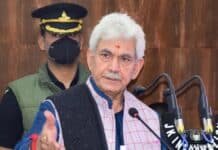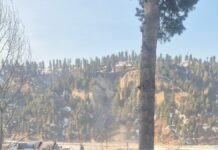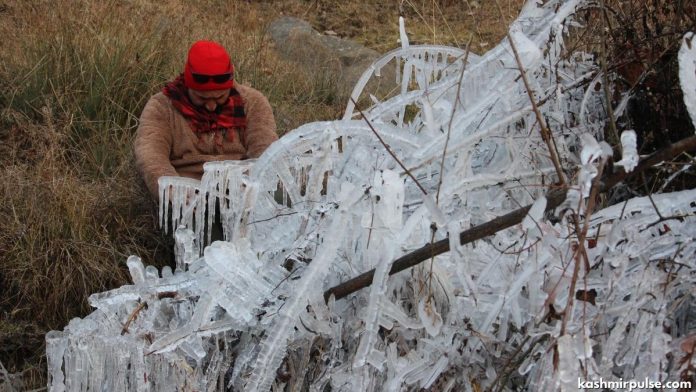
SRINAGAR — With two back-to-back Western Disturbances “mostly likely” affecting Jammu and Kashmir from January 7 evening, the Meteorological department on Friday forecasted light to moderate snowfall in Jammu and Kashmir for nearly seven days from Saturday onwards.
“Two back-to-back Western Disturbances (are) most likely to affect J&K and adjoining from 7th January (evening),” a Meteorological department official here told the news agency GNS, adding, “Under the influence of the 1st WD on 7th (evening) to 9th January (afternoon), weather is likely to be cloudy with possibility of light snow over higher reaches during 7th night and light rain/snow over plains of J&K and light to moderate snow in middle and higher reaches during January 8th/9th.”
From January 9th (afternoon) to 11th January (afternoon), he said, weather is likely to be cloudy with the possibility of light snow over isolated higher reaches of Kashmir.
“Under the influence of the 2nd WD from January 11th (afternoon) to 13th January (afternoon), the weather is expected to be cloudy with the possibility of light rain/snow over plains of Jammu and Kashmir and light to moderate snow over middle and higher reaches during 12/13 January,” he said.
He advised travellers and transporters to plan their journey accordingly, especially over the Sonamarg-Zojila-Gumni axis, Razdan Pass, Sinthan Pass, Sadhna Pass, Mughal Road etc. “There is going to be an improvement in minimum (night) temperature and dip in maximum (day) temperature.”
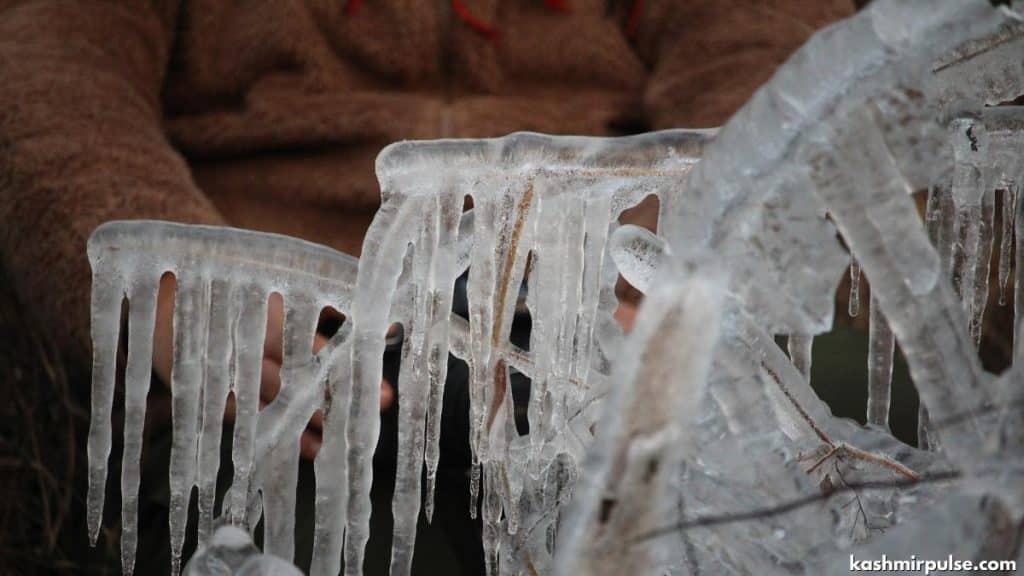
Meanwhile, severe cold conditions continued in Kashmir Valley even as there was a slight rise in the minimum temperature on Friday.
The Meteorological department official told GNS that Srinagar recorded a low of minus 5.5°C against last night’s minus 6.4°C which was the coldest for the season so far. “Today’s minimum temperature was 3.6°C below normal.”
Qazigund recorded a low of minus 5.6°C against minus 6.2°C, the lowest recorded this season for the gateway town of Kashmir. “Today’s minimum temperature was 2.7°C below normal,” he said.
Pahalgam, he said, recorded a low of minus 8.6°C against minus 9.2°C on the previous night. “The coldest night recorded this season in the famous tourist resort in south Kashmir’s Anantnag district was on January 2 when the mercury plunged to minus 9.6°C,” he said. Today’s minimum temperature was 1.6°C below normal for the place, as per the official.
“Kokernag recorded a low of minus 4.3°C against minus 4.4°C on the previous night,” he said, adding that it was 0.3°C below normal for the place.
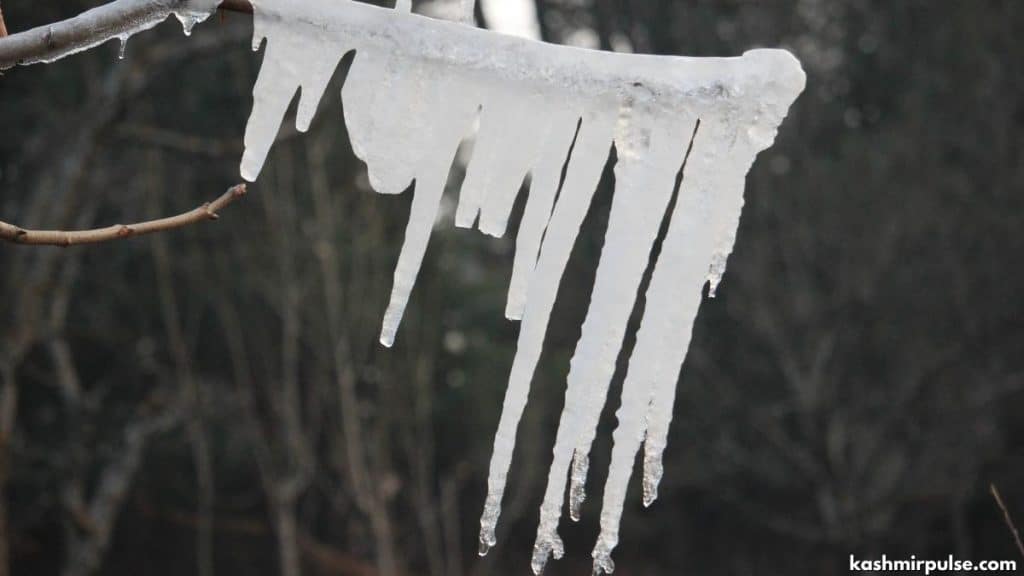
Gulmarg recorded a low of minus 5.0°C against minus 7.5°C on the previous night, the official said. “It was 2.8°C above normal for the world-famous skiing resort in north Kashmir’s Baramulla district which recorded its coldest night on January 2 when the minimum temperature plummeted to minus 10.0°C,” the official said.
“In Kupwara town, the mercury settled at minus 5.6°C against minus 6.0°C on the previous night in the north Kashmir area,” he said. The official said that the temperature was 2.9°C below normal.
Jammu recorded a low of 3.7°C against 3.0°C on the previous night. “It was 3.7°C below normal for J&K’s winter capital,” he said.
Banihal recorded a low of 5.4°C (above normal by 5.4°C), Batote 3.6°C (above normal by 2.1°C), Katra 4.6°C (1.4°C below normal) and Bhadarwah minus 0.6°C (1.6°C below normal).
“In Ladakh, Leh and Kargil recorded a low of minus 14.6°C and minus 18.1°C respectively,” the official said.
Kashmir is under the grip of Chillai-Kalan, the 40-day-long harsh winter period that started on December 21. It does not mean an end to the winter either. It is followed by a 20-day-long period called ‘Chillai-Khurd’ that occurs between January 30 and February 19 and a 10-day-long period ‘Chillai-Bachha’ (baby cold) which is from February 20 to March 1.
Follow Us
The Kashmir Pulse is now on Google News. Subscribe our Telegram channel and Follow our WhatsApp channel for timely news updates!


